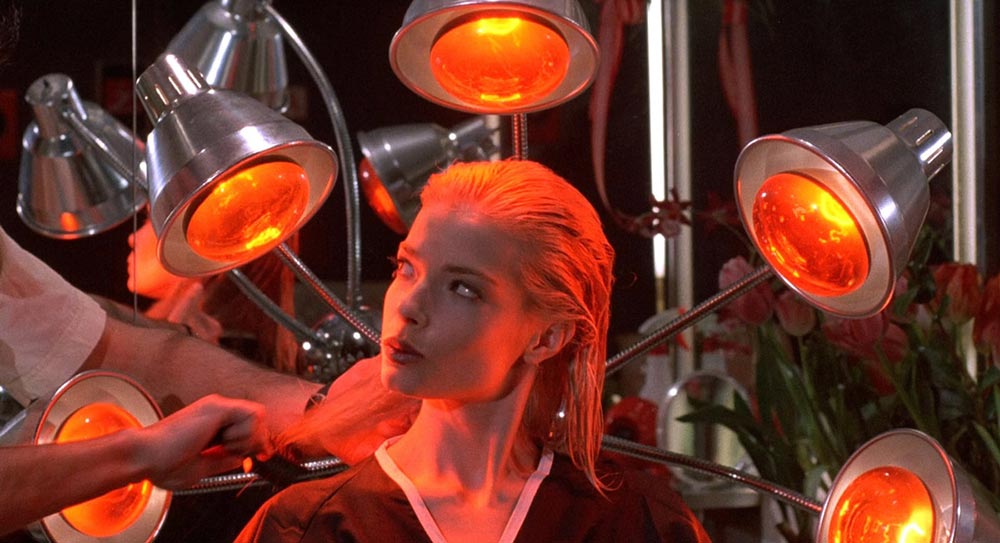Rows and rows of headshots line the floor. We watch from above as a man walks into frame, trampling the photographs underfoot. The camera prowls in circles at eye level as lights shimmer across the women’s faces below. The man chooses one as he rises to his feet, but as he steps forward he tosses it back into a sea of hopeless smiles. This gutting throwaway moment, and the lengthy casting sequence that follows it, cleave Larry Cohen’s Special Effects (1984) unevenly in two: between the construction of reality and the formation of fantasy. The man is director Chris Neville (Eric Bogosian), a maniacal New Hollywood burnout who cites “Honest Abe” Zapruder as his greatest influence when reporters badger him about a highly publicized, and potentially career-ending, flop. The part he’s now casting is “Andrea Wilcox,” a flesh-and-blood woman (Zoë Lund) he recently murdered in his Xanadu-like Soho loft while a hidden camera filmed the act through a two-way mirror. Her timeless story of showbiz dreams shattered by male predation will be his ticket back to the top and, if all goes as planned, her estranged husband’s ticket to the electric chair.
It’s the husband—a handsome rube, Keefe Waterman (Brad Rijn), who comes to the city to forcibly restore his marital-slash-parental status quo—that finds Neville’s star, Elaine Bernstein, working in a Salvation Army. Andrea was a ditzy yet resourceful blonde who spoke in an ADR-southern drawl, slipping in and out of sync. But the high-strung Elaine (also played by Lund) fends off Cohen’s selachian men with a clipped Manhattan contralto that is unmistakably her own. Lund goes to remarkable lengths to differentiate the two women; when Elaine points at her dead ringer’s photo and says, “That’s not me,” we’re inclined to believe her in spite of visible evidence to the contrary. Performing alongside figures in the aspiring actress’s life who appear as themselves, Elaine’s portrayal of Andrea becomes increasingly porous, and a thrill-seeking sexual entanglement with the woman’s husband (to her knowledge, the number one suspect) intensifies both on and off-set. As Elaine’s embodiment of a beautiful victim curdles into an obsession, Lund and Cohen begin to blur the women’s respective personae.
Neville’s suaveness and coke-fueled pomposity—at first brush, the bestial counterpoint to Lund’s suggestions of interiority in both of her performances—unravel at the same pace as Elaine’s self-interment into socially prescribed roles, moving from doomed bombshell to redeemed housewife as her conflicting selves are continually overwritten. Here, a strong-willed woman walks head on into the traps that men have laid out for her, and a rabid killer reveals his more recognizably human nature: a small man with a big name whose power and predilections have lent him the perfect cover for deliberate and calculating evil. His express mission of turning reality into make-believe—the “ultimate special effect”—belies the fact that his actions do just the opposite, ripping those violent fantasies away from the movie screen and impressing them on an all-too-accepting material world.
Special Effects screens tonight, July 13, on 35mm at Anthology Film Archives as part of the series “ZOË LUND.”



